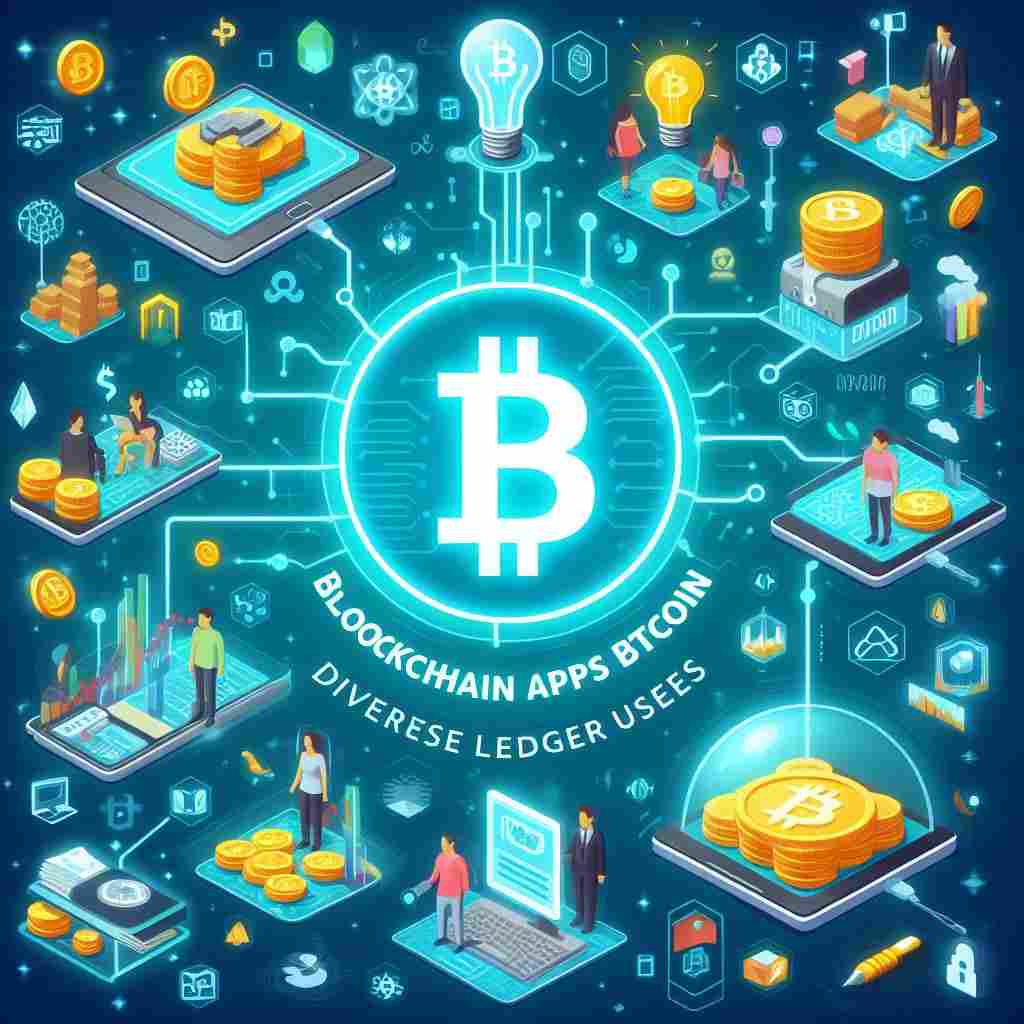While Bitcoin and cryptocurrencies may have propelled blockchain technology into the spotlight, its potential extends far beyond the realm of digital coins. This transformative technology, often dubbed a distributed ledger technology, is poised to disrupt and streamline numerous industries, from supply chain management to healthcare and beyond.
Forget crypto! Dive into the transformative potential of blockchain apps beyond finance, revolutionizing fields like supply chain and smart contracts.
Understanding Blockchain: A Shared Ledger of Trust
At its core, blockchain functions as a tamper-proof, decentralized database. Imagine a giant spreadsheet, accessible to everyone on the network, where every transaction is meticulously recorded and cryptographically secured. This “shared ledger” eliminates the need for central authorities, fostering trust and transparency in a way never before seen.
Beyond the Buzzword: Demystifying Blockchain Applications
Now, let’s delve into the exciting world of blockchain applications beyond the world of finance:
Supply Chain Management: Tracking Every Step from Farm to Fork
Imagine tracing the journey of your organic avocado from a sun-drenched orchard in Mexico to your grocery store shelf. Blockchain empowers this level of transparency in supply chains, ensuring ethical sourcing, product authenticity, and efficient logistics. By recording every step – from harvest to transportation – on the blockchain, consumers can gain newfound confidence in the products they buy, while businesses can optimize their operations and reduce costs.
Smart Contracts: Automating Agreements with Trust
Think of smart contracts as self-executing agreements stored on the blockchain. These digital contracts automatically trigger predetermined actions upon fulfilling specific conditions, eliminating the need for intermediaries and reducing the risk of fraud. Imagine signing a real estate contract that automatically transfers ownership upon payment confirmation, or receiving insurance payouts instantly after filing a claim. These are just a glimpse of the possibilities, with smart contracts poised to revolutionize industries like finance, law, and real estate.
Imagine

A shopper scans a QR code on a fruit package and instantly accesses its origin, farming practices, and transportation history. Blockchain empowers consumers to make informed choices and holds producers accountable for sustainable practices.
Healthcare: Securing Sensitive Data and Streamlining Processes
The healthcare industry is ripe for blockchain disruption. Patients can securely store their medical records on the blockchain, granting authorized healthcare providers access while maintaining control over their sensitive data. Blockchain can also streamline clinical trials, drug supply chains, and insurance claims processing, fostering greater efficiency and transparency in the healthcare system.
Identity Management: Redefining Ownership and Control
In a world with rampant data breaches, blockchain offers a secure solution for identity management. Individuals can store their personal information – from passports to diplomas – on the blockchain, allowing them to control who has access and how their data is used. This empowers individuals and reduces the risk of identity theft, paving the way for a more secure and decentralized digital identity landscape.
Think
A rental agreement automatically releases funds to the landlord once the tenant vacates the premises, based on pre-programmed terms like occupancy duration and damage deposits. Smart contracts bring efficiency and transparency to various contractual arrangements.

Voting Systems: Enhancing Transparency and Security
Elections plagued by doubt and allegations of fraud could become a thing of the past with blockchain-based voting systems. By recording votes immutably on the blockchain, the technology can ensure transparency and tamper-proof results, boosting public trust in the democratic process. Additionally, blockchain can facilitate secure online voting, potentially increasing voter participation and accessibility.
Related: AI in IT: Revolutionizing Industries with Artificial Intelligence
Picture
A refugee uses a blockchain-based identity to access financial services, education, and healthcare, fostering greater inclusion and empowerment.
Envision
A patient accesses their medical history across different healthcare providers through a secure blockchain platform, empowering them to manage their health effectively and participate in research initiatives.
The Road Ahead: Embracing the Blockchain Revolution
While blockchain technology is still in its nascent stages, its potential to transform numerous industries is undeniable. As the infrastructure and regulations surrounding blockchain mature, we can expect to see even more innovative applications emerge, shaping the future of various sectors. From revolutionizing supply chains to streamlining healthcare, blockchain promises to bring greater transparency, trust, and efficiency to a wide range of activities.
Embracing the Future: Are You Ready for Blockchain?

The world is on the cusp of a blockchain revolution, and the time to explore its potential is now. Whether you’re a business leader, a tech enthusiast, or simply someone curious about the future, understanding blockchain and its diverse applications will equip you to navigate the changing landscape and seize the opportunities it presents. So, buckle up and get ready to witness the transformative power of blockchain – the technology that’s not just about Bitcoin, but about shaping a more secure, transparent, and interconnected world.
Imagine
Casting your vote through a secure blockchain platform, ensuring your voice is heard and counted accurately, fostering greater participation and trust in democratic processes.
Unlocking the Potential: Challenges and Opportunities
While the possibilities are vast, blockchain technology faces its share of challenges. Scalability, energy consumption, and regulatory uncertainties are some hurdles that need to be addressed for widespread adoption. However, ongoing research and development are rapidly paving the way for solutions.
The future of blockchain is bright, with its potential to revolutionize diverse industries and reshape how we interact with information. As we move beyond the hype and explore its practical applications, blockchain applications hold the promise of a more secure, transparent, and efficient world.
